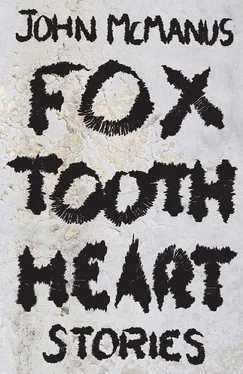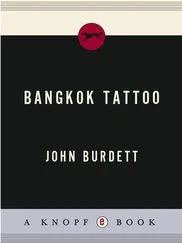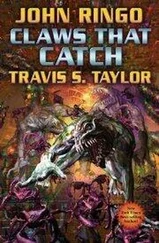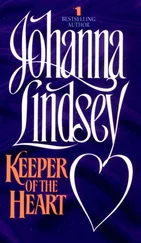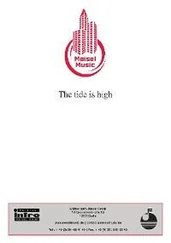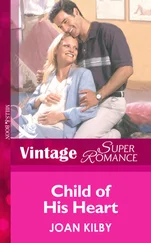“Your parents should come fill out an application.”
“My mom died, and I don’t have a dad. I live with my brother.”
The man’s tightening smile revealed the essence of what he would say: parental involvement was part of the pedagogy, and it wasn’t cheap; there were no scholarships. Rather than beg abjectly to mop floors, clean toilets, Carl thanked him and left. Riding home, he despised his sisters for attracting bullies, his brother for being a criminal, their mom for raising such a sorry lot. He delivered that anger into his pedal strokes. When he crossed the edge of a plateau into a rare descent, he was already soaring. Then it was like he’d leapt into another biome: sky crisp against a long prairie, exhilaration pumping out of his heart. His T-shirt an airfoil, he stood upright in perfectly dry air. The sky’s crispness, he thought, derives from aridity. When places looked pretty on TV, it was because they weren’t humid. For the first time since Silas had died, Carl felt hopeful. Screw the Ozarks. There were better mountains, and he could go climb them and ride down and his sorrow would be his own fault — that’s what he was thinking when his tire blew and he went tumbling over the guardrail.
For a few months his hard luck multiplied. His blueprints disappeared out of his old house. A time-share developer bought Thistle Mountain and the hills around it. He learned that from his sister-in-law, Denise, as she fed and bathed him. Laid up all day with his broken legs propped up on the coffee table, he found that asking for help made him feel worthless and ashamed. Under his stinking casts his little cousins crawled, singing “London Bridge” while he sketched buildings and requested meals of minimal complexity, prepackaged things he hated the taste of, until one morning his brother and sister-in-law were arrested.
It was a lot like the old dreams: six cops busted in, handcuffed Frank and Denise, read charges of interstate drug trafficking, and carted them off. The social worker who stayed insulted Carl with children’s books and cartoons. Still, he continued to dismiss as magical thinking the notion that he had hurt the Bartons with his warheads, until the boyfriend of his sister Becky, who was preparing to take him in, stabbed Becky in the heart.
His sister Wilma wheeled him to Becky’s funeral, where his sister Sheila arrived with a black eye. “What’s with your eye?” asked Wilma afterward.
“It’s been a tricky week.”
“I’m on probation, so he can’t stay with me.”
“I can’t keep him myself.”
“Have you heard of Jim Smith?” Carl asked his sisters.
“I ain’t good with names,” Wilma said.
“Mom’s files say he admitted her to a program in Virginia.”
“That box went to the landfill.”
“Did she mention Jim Smith to you?”
“Did she talk to any of us about anything ever?” said Sheila, with a tinge of lament that made Carl sorry for her. Imagining the childhood they’d have shared if she’d been younger, he wanted to ask, Do you think we’ve endured an unlikely amount of suffering? She would only have answered that God gives no more than you can take. He kept mum. His hapless sisters seemed apart from him, logic problems to puzzle out rather than humans to love.
They moved Carl into Sheila’s apartment in the gaudy tourist town of Branson, next door to a country music theater where Sheila’s stalker worked at the bar. To take out a restraining order would get Glenn fired, so Sheila didn’t. “While I’m at work, don’t answer the phone or the door,” she said before leaving Carl alone to repair his reputation as an editor.
On her computer he abridged and amended page after page that he’d thought of as his to administer: the St. Francois Mountains; the Boston Mountains; the Salem and Springfield Plateaus. Together these made up the Ozarks, whose stems occupied Carl for days. The Ozark Mountain forest ecoregion; ecoregions in general; biomes; then back in toward the specific, updating citations, testing links. It wasn’t always intellectually valuable work, but it was satisfying, necessary work. Thousands of others were doing it at the same time. To imagine them all gardening their plots of knowledge together, fertilizing soil, plucking out weeds, gave Carl the well-being he used to find outdoors.
“Shouldn’t you go to school?” Sheila asked.
“Mom enrolled me online,” he lied. “The work’s electronic.” It was true he listened to Open Yale Courses while sifting through search results for all three-word combinations in his mother’s letter. Some work took place offline, like when he phoned the sperm banks of Virginia and every company called JCP, saying things like “I need to talk to Jim Smith,” and “This is Marissa Barton, calling about my account.” No one knew a thing. It seemed he would never learn why he stood apart from his relatives. By the time he happened to turn on the Late Show , on the evening of the day when one cast was removed and he graduated to crutches, he was ready to give up.
The guests, said the announcer, included a Marin County boy named Heath Nabors IV, “who, after comparing the DNA of humpback whales, songbirds, and humans, alleges to have isolated genes for musical ability.” That boy strolled onstage and the TV became a mirror. It was Carl’s doppelgänger, with his same oblong jaw, his fair face, his gangly arms, his questioning eyes, his age and stature.
Grinning in a way Carl had never seen himself grin, Heath Nabors IV sat down on a couch. “Your parents must be proud,” the host said.
“I’ve been emancipated from my parents,” Heath explained, with brash pride that sent Carl reeling into self-loathing even as he sat transfixed.
“At the age of eleven?”
“I’m twelve,” Heath said. Carl saw how he must have been sticking his own chest out. Giddy, he heard only little phrases of Heath’s. “Tonal metaphors.” “Acoustic exhaustion.” He imagined such a boastful voice booming out of himself while he kicked Silas, and here was how his lip must twist up in pride before bragging: “My dad made a deal. If I can play every instrument in the orchestra by sixteen, he’ll buy me a Ferrari.”
Heath produced a flute and whistled a display of his technical mastery. Whatever the fourth Heath Nabors had been emancipated from, the third was missing a boy, thought Carl as his sister Sheila entered the room.
“Has anyone knocked?”
“Does Heath Nabors IV ring a bell?”
“This kid? Is he famous?”
“Look at him,” Carl said. His twin was explaining his goal to decode whale speech; Heath doubted that birds had much to say.
“I saw this episode a while back,” Sheila said, as if to prove once and for all that Carl’s smarts derived from his paternal line. “He resembles you a bit.”
She walked away. How could she not see it? Because of studio makeup, Carl thought. Because of schooling: i.e., money. Because of dread, the absence of it in Heath’s face, the presence of it in his own. A widening gap, already manifest. The adult Heath would be handsome like film stars, while Carl would be a worn and hard Ozark man.
A new kind of dread pooled like mercury under Carl’s skin as he glimpsed a life almost lived, an injustice so common to fairy tales.
He dialed long distance information to ask for Heath Nabors. Soon he was writing down the number for his identical wunderkind’s father. He held his breath and called it. When a woman answered, he asked for Heath the Fourth’s number. She gave it to Carl. He keyed it in. After two rings, he heard a click.
“Yep?” said his own impossible voice, and then Carl could have wept, because it was as if he’d tapped into some plane where Marissa was alive, where she had sought treatment, where she had put Carl in music camp instead of letting him wander to maim and kill.
Читать дальше
